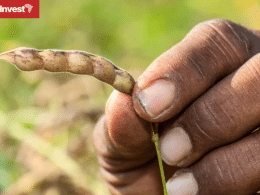A new economic stimulus package has recently been introduced in which the Tanzania agriculture sector will receive financial priority, with special focus being given to increasing food production in order to both fulfill the domestic needs of the country and to be used for exportation.
In order to accomplish this task, the government is preparing to utilize the Tanzania Investment Bank (TIB) as a means of disbursing TZS 20 billion into the general economy as well as an additional TZS 20 billion to be used specifically for low-interest farm inputs.
In addition, President Jakaya Kikwete also said that another TZS 20 billion would be provided by the banks that involve themselves in this project.
According to a report by This Day, the government, in partnership with the World Bank, is also currently looking into the possibility of launching a credit facility so as to allow for the purchase of additional tractors.
The primary focus of this rescue package is to offset the losses that were felt by cash crop exporters during the 2008/2009 fiscal year.
To this end, President Kikwete has announced that the government is planning to provide TZS 21.9 billion in compensation to cover the debts that cooperative societies and other companies will incur.
“I want to assure you that the need to protect our country from the worst effects of the global recession has been taken seriously by the government,” he said, “This plan intends to firstly reduce the pinch of the recession and secondly boost investments in key economic sectors.”
The President went on to explain that the general intention of the plan was to both reduce losses and debts incurred by companies that bought various crops, and to reimburse the banks from which the business people borrowed.
In addition, President Kikwete explained that, without assistance from the stimulus finds, the failure of companies to pay back their loans would result in their being evicted by the bank from which they had borrowed as well as bankruptcy in some cases.
Either of these results would lead to the banks refusing to lend to these companies again, in which case there would be a subsequent surplus in crops all over the country that had not yet been purchased.
Other sectors to benefit from the rescue package include local industries, the tourism sector, the banking sector, the mining sector and the export guarantee along with the small medium enterprise credit schemes.










